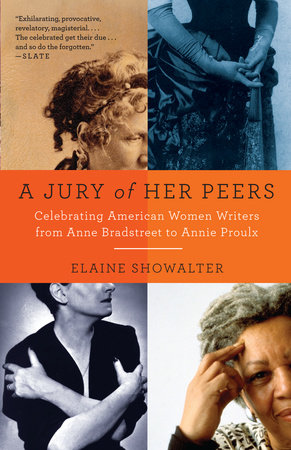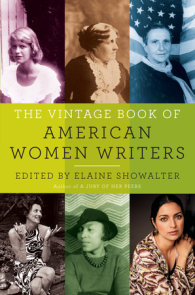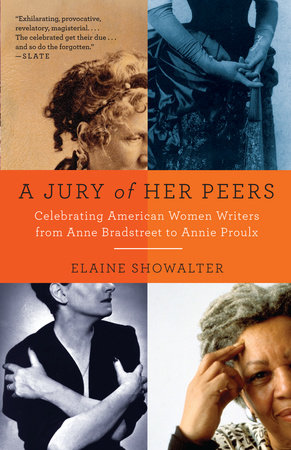

A Jury of Her Peers
By Elaine Showalter
By Elaine Showalter
By Elaine Showalter
By Elaine Showalter
Category: Literary Criticism | History
Category: Literary Criticism

-
$22.00
Jan 12, 2010 | ISBN 9781400034420
-
Feb 24, 2009 | ISBN 9780307271457
YOU MAY ALSO LIKE
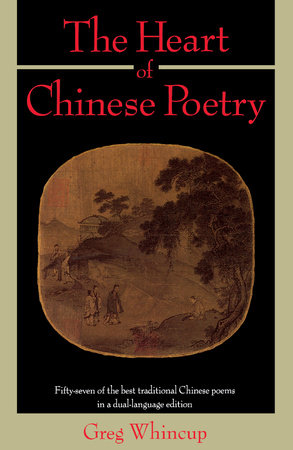
The Heart of Chinese Poetry
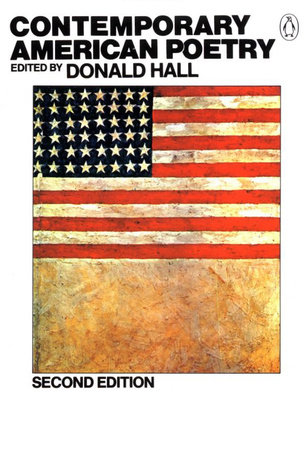
Contemporary American Poetry
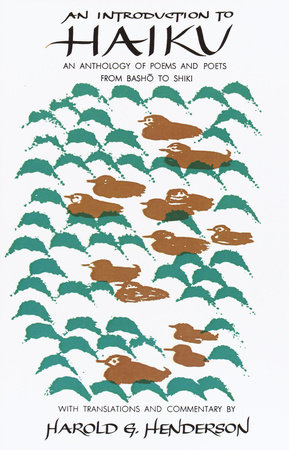
Intro to Haiku
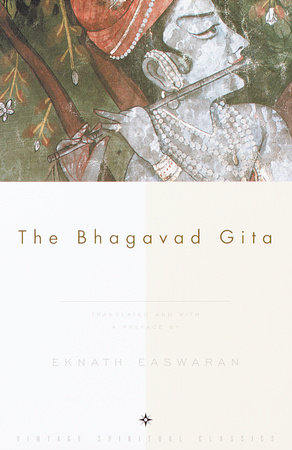
The Bhagavad Gita

yes I said yes I will Yes.
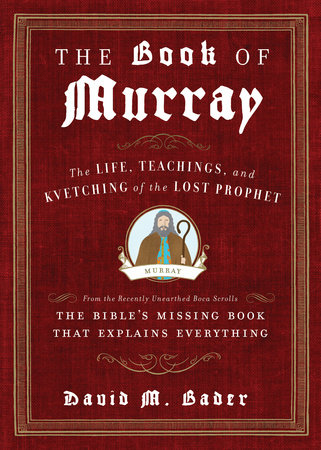
The Book of Murray
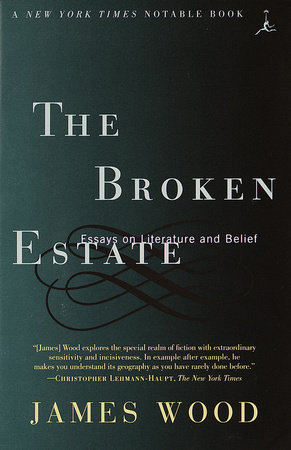
The Broken Estate
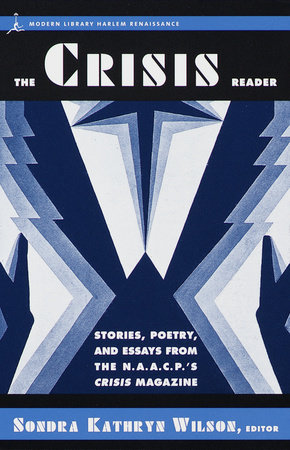
The Crisis Reader
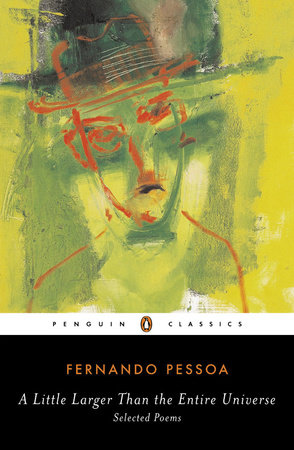
A Little Larger Than the Entire Universe
Praise
“Exhilarating, provocative, revelatory, magisterial . . . The celebrated get their due . . . and so do the forgotten.”
—Slate
“A work of astonishing vision, breadth, intelligence, and audacity. . . . Sure to be required reading for all who have an interest in American literary history.”
—Joyce Carol Oates
“[A] grand new work of literary history . . . A critical standout . . . [Showalter] opines with zest on the personalities and books of the writers here . . . I do relish her critical gusto and guts . . . [She] has inspired me.”
—Maureen Corrigan, Fresh Air, National Public Radio
“Remarkable. . . . A Jury of Her Peers does an enormous service, houses a drop-dead reading list and gives the reader a fluid framework for the great (much of it still undiscovered) wealth of writing by women in this country.”
— The Los Angeles Times
“Impressively researched. . . . Generous, thought-provoking. . . . [Showalter is] less polarized and more nuanced than other feminist critics of her generation . . . She is a lively and incisive guide, the perfect Virgil for our quest.” —The Washington Post
“Enlightening . . . the book may be dipped into at any chapter with much reward . . . . Showalter captures so well, often in just a few paragraphs, the image of the women she writes about. . . . Reading A Jury of Her Peers is not only an education in literary history, it is eminently satisfactory intellectual nourishment. 4 out of 4 stars.” —Free Press
“[A] vast democratic volume . . . . Vivid . . . extremely readable and enlightening . . . . Her short, incisive biographies offer a glimpse into the exotic travails of the past and the eternal concerns of female experience . . . [A] ranging, inclusive history . . . . likely to become an important and valuable resource for anyone interested in women’s history.” —The New York Times Book Review
“A delicious compendium, a book that belongs in literature courses, of course, but also in writerly libraries and in the hands of anyone who enjoys reading about writers’ lives. . . . Essential.” —Barnes & Noble Review
“Clear-sighted, ambitious . . . minutely researched and rich with opinion, anecdotes, samples, and interpretation. . . . Monumental.” —Elle
“Absorbing. . . . excellent. . . . insightful. . . . the prose is so good that the 500-plus-page book also works as an absorbing cover-to-cover read. . . . Showalter does not try to force any of these writers into uncomfortable slots in any kind of artificial female pantheon. These writers are all individuals, and Showalter treats them as such.” —The Christian Science Monitor
“Elaine Showalter has delivered the first literary history of American women ever published, and the result is a riveting journey with scarcely a becalmed page . . . rich, readable . . . an immensely valuable work . . . vibrant regardless of where one dips in.” —The Seattle Times
“Accessible and readable. Brimming with wit and insight . . . . This monumental book will greatly enrich our understanding of American literary history and our culture.” —Tuscon Citizen, Recommended New Title
“Showalter may have written the perfect book-group book: Not only is it fascinating on its own, but it also opens up possibilities for decades of further reading. . . . Like a raucous party, with some squabbling going on in the darker corners. . . . Showalter’s prose is lively, and she has no problem expressing her opinions” —The Columbus Dispatch
“A breathtaking overview of the intersections of gender and genre in American letters. . . . With its frank assessments, impressive research and expansive scope, A Jury of Her Peers belongs on the shelf of any reader interested in the development of women’s writing in America.” —Ms. Magazine
Table Of Contents
Introduction
1. A New Literature Springs Up in the New World
2. Revolution: Women’s Rights and Women’s Writing
3. Their Native Land
4. Finding a Form
5. Masterpieces and Mass Markets
6. Slavery, Race, and Women’s Writing
7. The Civil War
8. The Coming Woman
9. American Sibyls
10. New Women
11. The Golden Morrow
12. Against Women’s Writing: Wharton and Cather
13. You Might as Well Live
14. The Great Depression
15. The 1940s: World War II and After
16. The 1950s: Three Faces of Eve
17. The 1960s: Live or Die
18. The 1970s: The Will to Change
19. The 1980s: On the Jury
20. The 1990s: Anything She Wants
Acknowledgments
Notes
Index
Writers Discussed in the Book
Introduction
Susan Glaspell
Lydia Maria Child
Catherine Fenimore Woolson
Mary Austin
Zona Gale
Elizabeth Roberts
Julia Ward Howe
Pauline Hopkins
Nella Larsen
Emily Dickinson
Harriet Beecher Stowe
Gwendolyn Brooks
Edith Wharton
Willa Cather
Chapter 1: The 1600s
Anne Bradstreet
Mary Rowlandson
Chapter 2: The 1700s
Sarah Kemble Knight
Jane Coleman Turell
Elizabeth Magawley
Phillis Wheatley
Judith Sargent Murray
Mercy Otis Warren
Susanna Rowson
Anna Steele
Anna Young Smith
Sarah Wentworth Morton
Abigail Adams
Sukey Vickery
Hannah Webster Foster
Sally Sayward Barrell
Keating Wood
Tabitha Tenney
Chapter 3: 1820s-1830s
Lydia Maria Child
Sarah J. Hale
Mary Griffin
Catherine Maria Sedgwick
Caroline Kirkland
Chapter 4: 1840s
Margaret Fuller
Caroline May
Alice Cary
Frances Sargent Osgood
Maria Gowen Brooks
Elizabeth Oakes-Smith
Lydia HuntleySigourney
Anna Cora Mowatt
Harriet Beecher Stowe
Elizabeth Cady Stanton
Chapter 5: 1850s, Part I
Julia Ward Howe
Harriet Beecher Stowe
Miriam Berry Whicher
Susan Warner
Grace Greenwood
Hannah Gardner Creamer
Caroline Chesebro’
Anna Warner
Elizabeth Stuart Phelps
Caroline Hentz
E.D.E.N. Southworth
“Fanny Fern” (Sarah Peyton Willis)
Laura Curtis Bullard
Lillie Devereaux Blake
Alice Cary
H. Marion Stephenson
Mary Virginia Hawes Terhune
Augusta Jane Evans
Harriet Prescott Spofford
Chapter 6: 1850s, Part II
Harriet Beecher Stowe
Mary Eastman
Caroline Hentz
Frances Watkins Harper
Lydia Maria Child
Harriet Jacobs
Harriet E. Wilson
“Hannah Crafts”
Chapter 7:
The Civil War
Harriet Beecher Stowe
Lucy Larcom
Caroline A. Mason
Julia LeGrand
Louisa May Alcott
E.D.E.N. Southworth
Augusta Jane Evans
Rebecca Harding Davis
Elizabeth Stuart Phelps
Elizabeth Barstow Stoddard
Emily Dickinson
Mary Terhune
Martha Finley
Mary Abigail Dodge
Chapter 8: The 1870s
Elizabeth Stuart Phelps
Julia Ward Howe
Harriet Beecher Stowe
Gail Hamilton
Alice Cary
Marietta Holley
Susan B. Anthony
Lillie Devereaux Blake
Sherwood Bonner
Chapter 9: The 1880s
Constance Fenimore Woolson
Harriet Beecher Stowe
Emma Lazarus
Rose Terry Cooke
Sarah Orne Jewett
Willa Cather
Mary E. Wilkins Freeman
Mary Noailles Murfree
Elizabeth Stuart Phelps
Helen Fiske Hunt Jackson
Chapter 10: The 1890s
Charlotte Perkins Gilman
Gertrude Atherton
Kate Chopin
Elizabeth Cady Stanton
Louise Imogen Guiney
Ella Wheeler Wilcox
Elizabeth Robins
Edith Wharton
Frances Harper
Pauline Hopkins
Eveleen Mason
Lois Waisbrooker
Alice Ilgenfritz Jones
Ella Merchant
Eliza J. Nicholson
Elizabeth Gilmer
Julia Ward Howe
Maud Howe
Grace King
Louisa May Alcott
Alice Dunbar-Nelson
Helen Hunt Jackson
Mary Wilkins Freeman
Ellen Glasgow
Helen Gray Cone
Chapter 11: The 1900s
Margaret Fuller
Mary Johnston
Charlotte Perkins Gilman
Francis Whiting Halsey
Edith Wharton
Gertrude Atherton
Mary Hunter Austin
Gertrude Stein
Hilda Doolittle
Marianne Moore
Amy Lowell
Mary Antin
Gertrude Simmons Bonnin
Edith Maud Easton
Elizabeth Robins
Rachel Crothers
Susan Glaspell
Kate Chopin
Willa Cather
Kate Douglas Wiggin
Geneva Stratton-Porter
Jean Webster
Eleanor H. Porter
Chapter 12: The 1910s
Edith Wharton
Willa Cather
Margaret Fuller
Harriet Beecher Stowe
Kate Chopin
Chapter 13: The 1920s
Sylvia Plath
Gwendolyn Brooks
Josephine Herbst
Ellen Glasgow
Elizabeth Madox Roberts
Edith Summers Kelley
Edna St. Vincent Millay
Gertrude Stein
Hilda Doolittle (H.D.)
Elinor Wylie
Amy Lowell
Genevieve Taggard
Dorothy Parker
Louise Bogan
Sara Teasdale
Louisa May Alcott
Genevieve Taggard
Mina Loy
Dorothy Dunbar Bromley
Nella Larsen
Josephine Herbst
Katherine Anne Porter
Sophie Treadwell
Zoe Akins
Zona Gale
Dorothy Canfield Fisher
Pearl Buck
Willa Cather
Anzia Yezierska
Emily Dickinson
Jessie Fauset
Kate Chopin
Chapter 14: The 1930s
Meridel Le Sueur
Susan Glaspell
Willa Cather
Emily Dickinson
Fanny Hurst
Katherine Anne Porter
Zoe Akins
Dorothy Parker
Tess Slesinger
Lillian Hellman
Clare Boothe
Pearl Buck
Margaret Mitchell
Edith Wharton
Jessie Fauset
Nella Larsen
Margaret Walker
Muriel Rukeyser
Sara Teasdale
Edna St. Vincent Millay
Martha Gellhorn
Josephine Herbst
Tillie Olsen
Louise Bogan
Djuna Barnes
Susan Sontag
Harriet Sohmers
Mary Wilkins Freeman
Zora Neale Hurston
Chapter 15: The 1940s
Louise Bogan
Jane Cooper
Margaret Walker
Gwendolyn Brooks
Sylvia Plath
Alice Bradley Sheldon
Martha Gellhorn
Hisaye Yamamoto
Eudora Welty
Carson McCullers
Flannery O’Connor
Katherine Anne Porter
Agnes Smedley
Jean Stafford
Margaret Walker
Harper Lee
Ann Petry
Dorothy West
Sally Benson
Ayn Rand
Betty Smith
Betty Macdonald
Jessamyn West
Laura Z. Hobson
Kathleen Winsor
Fay Kanin
Edna St. Vincent Millay
Chapter 16: The 1950s
Carson McCullers
Shirley Jackson
Sylvia Plath
Gwendolyn Brooks
Flannery O’Connor
Adrienne Rich
Joyce Carol Oates
Kathleen Norris
Fannie Hurst
Jessie Fauset
Nella Larsen
Harriette Simpson Arnow
Mary McCarthy
Jean Stafford
Grace Metalious
Leonie Adams
Babette Deutsch
Muriel Rukeyser
May Swenson
Mona Van Duyn
Jean Garrigue
Barbara Howe
Anne Sexton
Marianne Moore
Louise Bogan
Elizabeth Bishop
Patricia Highsmith
Ann Weldy
Lorraine Hansberry
Chapter 17: The 1960s
Gwendolyn Brooks
Anne Sexton
Denise Levertov
Muriel Rukeyser
Harper Lee
Katherine Anne Porter
Mary McCarthy
Louise Bogan
Joyce Carol Oates
S. E. Hinton
Adrienne Rich
Maxine Kumin
Tillie Olsen
Sara Teasdale
Edna St. Vincent Millay
Betty Friedan
Sarah Orne Jewett
Jean Stafford
Chapter 18: The 1970s
Adrienne Rich
Michelle Cliff
Kate Millet
Robin Morgan
Shulamith Firestone
Toni Cade Bambara
Charlotte Perkins Gilman
Toni Morrison
Erica Jong
Nikki Giovanni
Maya Angelou
Audre Lord
Ntozake Shange
Alice Walker
Zora Neale Hurston
Nella Larsen
Diane Johnson
Gail Godwin
Judith Rossner
Lois Gould
Joyce Carol Oates
Dorothy Bryant
Ursula LeGuin
Joanna Russ
Marge Piercy
James Tiptree, Jr./ Alice Bradley Sheldon
Willa Cather
Vonda N. McIntyre
Chelsea Quinn Yarboro
Joanna Russ
Grace Paley
Maxine Hong Kingston
Anne Tyler
Joan Didion
Susan Sontag
Cynthia Ozick
Chapter 19: The 1980s
Sharon Olds
Alice Walker
Phillis Wheatley
Joyce Carol Oates
Elizabeth Bishop
Cynthia Ozick
Ursula LeGuin
Beth Henley
Marsha Norman
Wendy Wasserstein
Sara Paretsky
Sue Grafton
Patricia Cornwell
Toni Morrison
Louise Erdrich
Alice Walker
Marilynne Robinson
Gloria Naylor
Sandra Cisneros
Amy Tan
Amy Hempel
Bharati Mukherjee
Mary Robison
Jayne Anne Phillips
Ann Beattie
Bobbie Ann Mason
Gloria Naylor
Chapter 20: The 1990s
Toni Morrison
Lynn Hejinian
Marilyn Hacker
Sharon Olds
Louise Glück
Anne Carson
Jorie Graham
Rita Dove
Jodie Picoult
Jennifer Weiner
Terry McMillan
Susannah Moore
A. M. Homes
Joyce Carol Oates
Susan Sontag
Susan Choi
Wendy Wasserstein
Joanne Dobson
Gish Jen
Jane Smiley
Harriet Beecher Stowe
Sena Jeter Naslund
Annie Proulx
Anne Bradstreet
Mary Rowlandson
21 Books You’ve Been Meaning to Read
Just for joining you’ll get personalized recommendations on your dashboard daily and features only for members.
Find Out More Join Now Sign In






